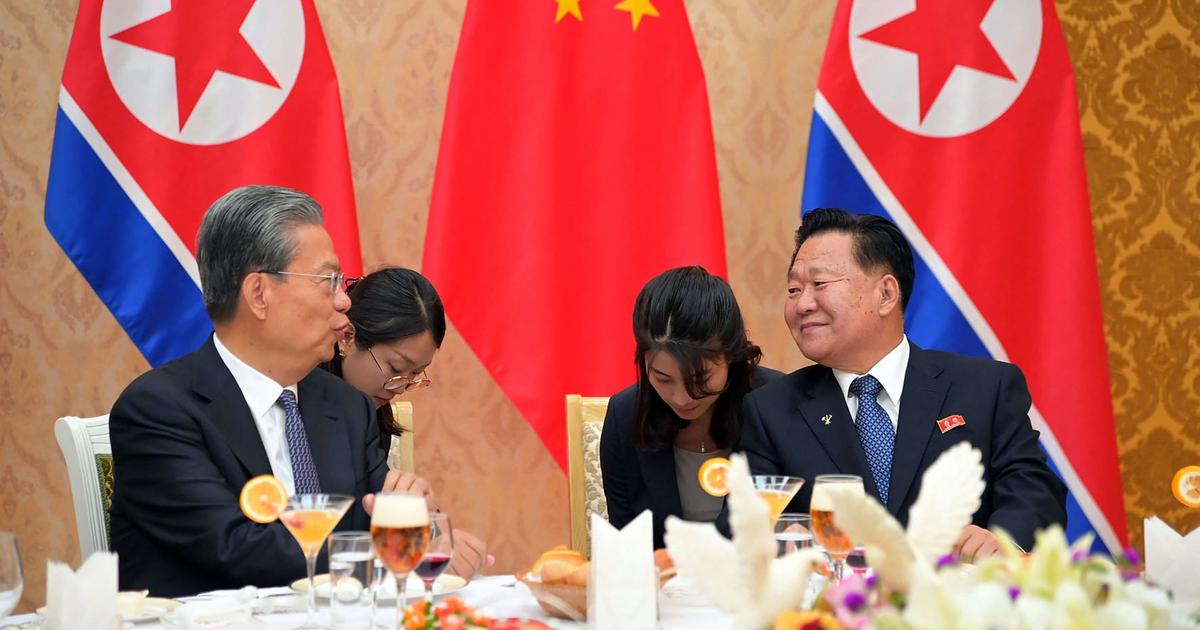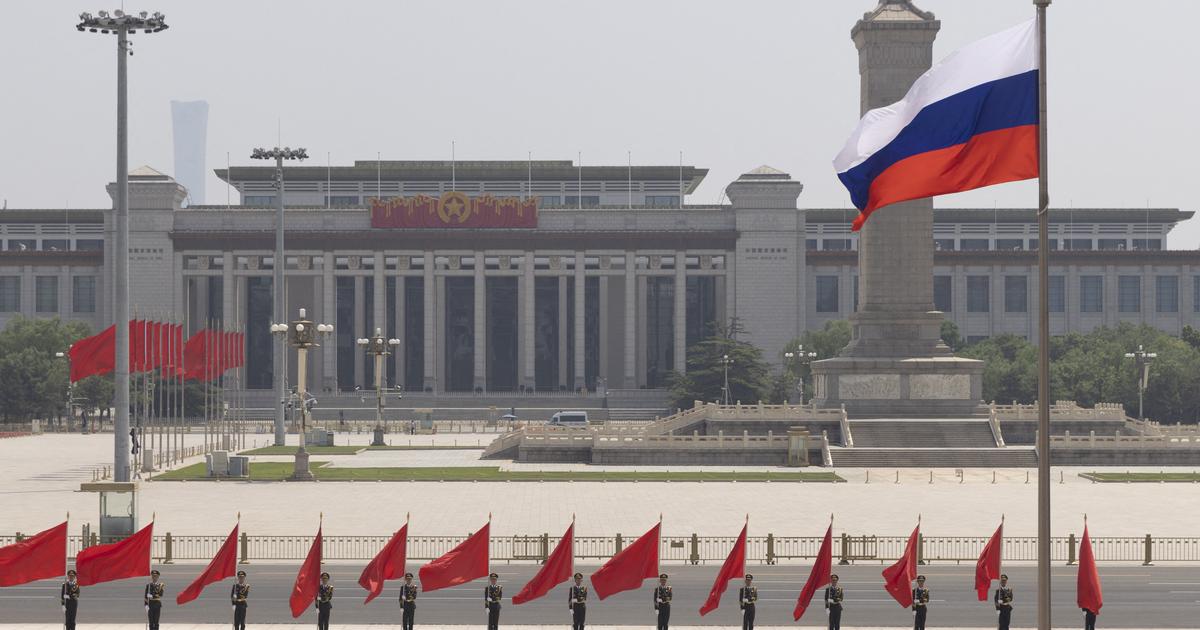A young man sitting with his hands bound in a torture device known as a "Tiger Chair."
Photo:
[M] DER SPIEGEL / STR / AFP;
Xinjiang Police Files
China is everywhere, if for no other reason than just this one device.
Millions of Germans use it for phoning, for listening to music and for surfing the web.
It is designed in Silicon Valley, but produced in Shenzhen and Zhengzhou.
The device is the iPhone - a slice of California, made in China.
The West may have invented capitalism, but the People's Republic is primarily responsible for shaping its present and future: with battery cells for electric cars, with computer chips, with rapid antigen tests for the coronavirus - pretty much everything, really.
The value of German imports from China has more than doubled since 2009.
For two decades, Germany's relationship with China seemed to produce only winners.
VW, Bosch and Siemens were able to cheaply produce cars, ABS systems and trains before then selling them at a healthy profit.
And China's economic boom ensured that their order books remained full, and their employees had plenty of work.
Consumers, meanwhile, benefited from falling prices: A television, for example, cost almost half as much in 2021 as it did in 2015.
How much, then, should it concern Germans when several thousand kilometers away, in a region called Xinjiang, thousands of members of a Muslim minority are being discriminated against, imprisoned, and thrown into camps?
The answer: a lot.
Because it raises a number of disturbing questions.
Is there anything that Germany can even do about it?
Or has the country already become so dependent on the regime in Beijing that it is completely powerless?
What would that mean if China were to attack Taiwan one day, or find itself in conflict with the Americans somewhere else?
This dangerous shortcoming has become even more glaringly obvious following this week's publication of the Xinjiang Police Files by DER SPIEGEL and international media partners.
Much of the West has placed itself at the mercy of a regime that is so brutal in its pursuit of presumed dissenters that the parliaments of Canada, France and the Netherlands, along with the US government, have labeled it genocide.
That which human rights organizations have long been denouncing can no longer be ignored by political and business leaders: Behind China's state capitalism stands a power apparatus which is able to complete huge projects like airports and high-speed rail networks in record time - but which is also capable, with the same uncanny focus, of installing surveillance facilities and internment camps,
vastly expanding its fleet of warships and bullying neighboring countries.
Under such conditions, "business as usual" is no longer possible.
Both morally and for reasons of business strategy.
The exploding prices for natural gas and oil stemming from the Russian invasion of Ukraine has made abundantly clear what the consequences are of looking the other way: a deep dependency that can only be fixed at a high economic price.
And Germany's dependence on China is even greater than it was on Russia.
Time is running short.
China still needs the markets in Europe and the United States.
If the Chinese economy continues to grow faster than all other industrialized countries, Beijing will be so strong that Europe won't have much leverage.
The war in Ukraine has shown that Europe and the US stand together when their fundamental values are under threat.
The sanctions against the Putin regime are an important signal for Beijing as well that, while globalization remains an important engine of growth, it can only work within the parameters of international law and human rights.
If Europe wants to retain influence, it also cannot leave all future technologies to the Chinese.
The European Union needs an industrial policy that consistently and robustly supports the development of key strategic industries.
Doing so won't make the Continent independent, but it will make it more resilient.
Industry also has a vital role to play.
Volkswagen, for example, has almost become a Chinese company that is merely headquartered in Germany.
Together with its partners, VW employs around 90,000 people in China.
One of its factories is located in Ürümqi, not far from a Uyghur internment camp.
Company executives like CEO Herbert Diess can no longer hide behind vaguely worded commitments to human rights.
They must demonstrate fortitude by no longer accepting crimes against humanity.
And draw consequences, if need be, including the suspension of production in a region where people are being thrown into internment camps.
Some companies have already shown that they can do without China in a pinch.
Apple's Korean competitor Samsung suspended the production of its mobile devices in China in 2019, shifting instead to Vietnam and India.
It shows that companies do have alternatives.
As do consumers.







